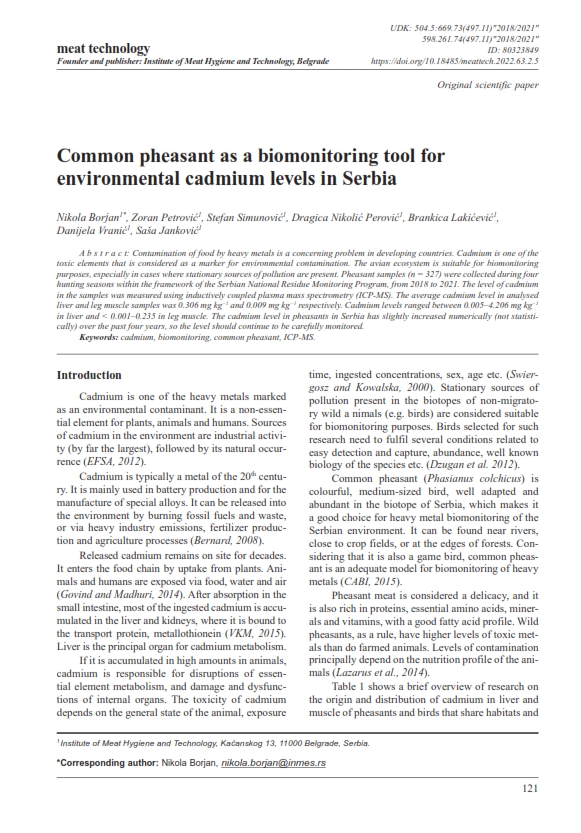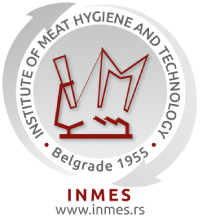Common pheasant as a biomonitoring tool for environmental cadmium levels in Serbia
Abstract
Contamination of food by heavy metals is a concerning problem in developing countries. Cadmium is one of the toxic elements that is considered as a marker for environmental contamination. The avian ecosystem is suitable for biomonitoring purposes, especially in cases where stationary sources of pollution are present. Pheasant samples (n = 327) were collected during four hunting seasons within the framework of the Serbian National Residue Monitoring Program, from 2018 to 2021. The level of cadmium in the samples was measured using inductively coupled plasma mass spectrometry (ICP-MS). The average cadmium level in analysed liver and leg muscle samples was 0.306 mg kg-1 and 0.009 mg kg-1 respectively. Cadmium levels ranged between 0.005 – 4.206 mg kg-1 in liver and < 0.001 – 0.235 in leg muscle. The cadmium level in pheasants in Serbia has slightly increased numerically (not statistically) over the past four years, so the level should continue to be carefully monitored.





